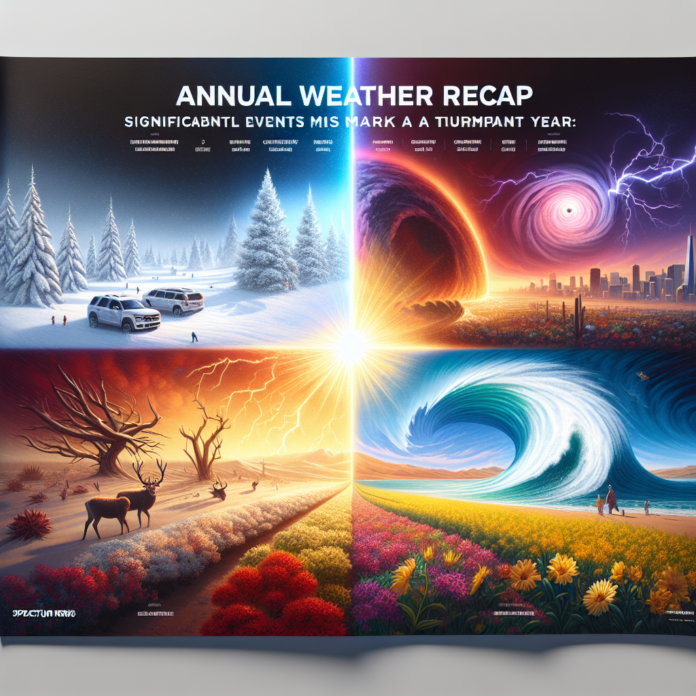Summary of Major Weather Events from the Past Year
National Weather Year-in-Review: A Year of Significant Weather Events
As we reflect on the past year, the world of meteorology was marked by an array of high-impact weather events that reshaped communities and sparked discussions on climate resilience. Spectrum News takes a closer look at the most notable occurrences that defined the year and their implications for the future.
Extreme Weather Patterns Dominate
The year witnessed an alarming increase in extreme weather phenomena, from unprecedented heatwaves to devastating hurricanes. Scientists and climatologists have linked many of these events to climate change, emphasizing the urgency of addressing environmental concerns. Summer months brought record-breaking temperatures across the globe, with regions experiencing heat indices that soared into the triple digits.
Hurricanes and Tropical Storms
The hurricane season was particularly brutal, with several storms making landfall and causing significant destruction. Notably, Hurricane Ida struck the Gulf Coast, leaving a trail of devastation in its wake. The storm’s rapid intensification and unprecedented rainfall led to catastrophic flooding, prompting emergency declarations in multiple states. In total, the 2023 hurricane season was characterized by above-average storm activity, raising alarms among meteorologists and disaster response teams.
Wildfires and Droughts
In addition to storms, wildfires ravaged vast areas, particularly in the western United States. The combination of intense heat and prolonged drought created ideal conditions for wildfires to ignite and spread rapidly. Communities were forced to evacuate, and firefighters tackled blazes that consumed thousands of acres. The impact of these fires extended beyond immediate destruction, affecting air quality and leading to long-term ecological damage.
Severe Flooding Events
Flooding was another significant issue, with heavy rainfall leading to flash floods in various regions. Cities that were unprepared for such deluges faced severe infrastructure challenges. The National Oceanic and Atmospheric Administration (NOAA) reported that areas hit by flooding experienced not only property damage but also disruptions to local economies and public services.
Winter Storms and Cold Snaps
The winter of 2023 brought its own challenges, with several regions experiencing severe snowstorms and arctic blasts. These weather patterns disrupted transportation and resulted in power outages, impacting millions. The fluctuation in temperatures also raised concerns about the reliability of energy grids, prompting discussions about the need for modernization and resilience planning.
Looking Ahead: Climate Resilience and Adaptation
As we move into a new year, the lessons learned from 2023’s weather events underscore the importance of climate resilience and adaptation strategies. Communities are increasingly recognizing the need to invest in infrastructure that can withstand extreme weather, as well as the importance of emergency preparedness and response plans.
Additionally, the role of technology in predicting and responding to weather events is becoming more crucial. Advances in meteorological science, artificial intelligence, and satellite monitoring are providing valuable tools for improving weather forecasts and enhancing disaster response strategies.
In conclusion, 2023 was a year defined by high-impact weather events that highlighted the pressing challenges posed by climate change. As we prepare for the future, it is vital that we prioritize sustainability and resilience in our communities to mitigate the impacts of extreme weather and protect our planet for generations to come.
